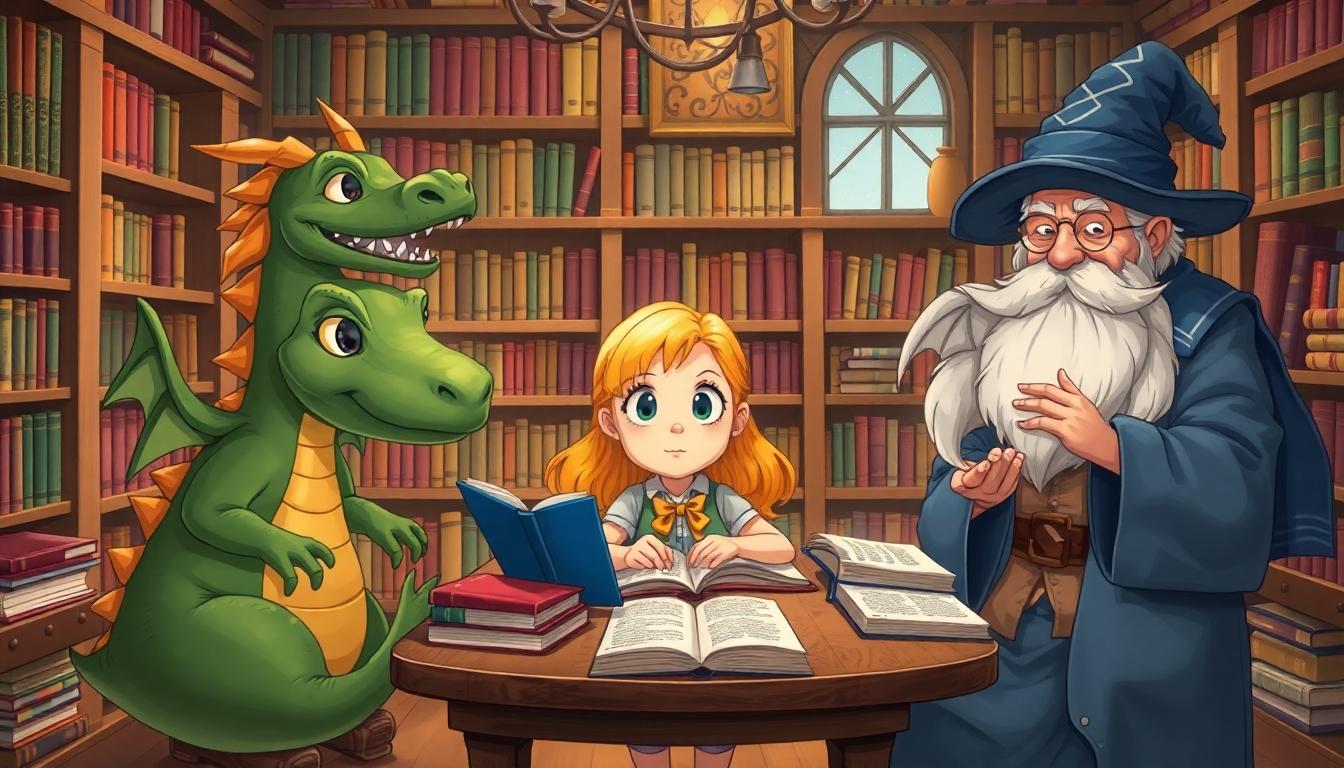Ready for a mental workout that celebrates the magic of literature? Book riddles challenge our minds while paying homage to our favorite pastime. We’ve gathered the most captivating brain teasers that will delight bibliophiles and puzzle enthusiasts alike.
Classic Riddles That Bookworms Will Love to Solve
- The Silent Companion
Bookworms know this riddle well: “I’m full of knowledge but cannot speak. I’m opened and closed but can’t move on my own. I have leaves but am not a tree. What am I?” The answer is simple – a book! This classic riddle captures the essence of our silent companions that transport us to different worlds.
- The Endless Journey
Try solving this literary brain teaser: “I can take you around the industry while you remain in your chair. My pages hold adventures both near and far. What am I?” Books allow us to travel anywhere in the universe without leaving our favorite reading spot.
- The Wisdom Keeper
Here’s a riddle that celebrates knowledge: “I’m not alive but can tell you a thousand stories. I have a spine but no bones. I share wisdom across generations. What am I?” Books serve as our civilization’s memory, preserving thoughts and ideas for centuries.
- The Paper Forest
Challenge your literary friends with this one: “I contain forests without trees, oceans without water, and deserts without sand. What am I?” A book’s pages create landscapes through words alone, painting vivid scenes in our minds.
- The Immortal Voice
Ponder this thoughtful riddle: “I speak though my author may be long dead. My words remain unchanged through decades. What am I?” Books preserve the voices of writers long after they’ve departed, giving their thoughts immortality.
- The Portable Time Machine
Literary enthusiasts will appreciate this puzzle: “I can transport you to ancient Rome, medieval castles, or future worlds. I require no electricity or fuel. What am I?” Books function as personal time machines, letting readers experience any era.
- The Aging Friend
Consider this nostalgic riddle: “I grow yellow with age but my stories remain colorful. My scent becomes richer over time. What am I?” Older books develop character through their aging pages, becoming treasured artifacts with distinctive aromas.
- The Silent Teacher
Test your fellow book lovers with: “I can educate without speaking, inspire without moving, and entertain without sound. What am I?” Books teach us countless lessons while remaining completely silent on our shelves.
Challenging Literary Riddles to Test Your Knowledge

Literary riddles about books offer a fascinating way to engage with literature, testing both your knowledge and problem-solving abilities. These brain teasers challenge you to think beyond the obvious and connect clues to reach satisfying answers.
Try solving these literary enigmas:
- What tells no story yet has a cover and pages?
A closed book.
- I have a spine, but no bones. I can open up to new worlds but need hands to roam.
A book.
- I begin with an “e” but only contain one letter.
An envelope.
- I house soldiers that march in lines, but I never fight.
A book (referring to the lines of text).
- I’m filled with stories, but I never speak. I can take you to places, without moving your feet.
A book.
- You can check me out, but you must bring me back.
A book from a library.
Fiction Favorites
Fiction-themed riddles often center around beloved characters and popular storylines that have captured readers’ imaginations for generations. These puzzles test your familiarity with classic tales and memorable protagonists.
A perfect example is: What book is about a boy who doesn’t want to grow up? The answer is “Peter Pan,” J.M. Barrie’s timeless story about youth and adventure. This type of riddle connects directly to exact works rather than books as objects, making them particularly enjoyable for avid fiction readers.
Poetry Puzzles
Poetry riddles investigate into the unique structure, language, and themes found in verse. These enigmas often require a deeper understanding of poetic devices and notable poets throughout literary history.
Literary giants like Samuel Taylor Coleridge and William Wordsworth incorporated riddle-like elements in their works, though these require historical context to fully appreciate. Their poems sometimes pose questions or present imagery that readers must unravel to discover deeper meanings. Poetry puzzles celebrate the cryptic nature of verse while challenging readers to look beyond literal interpretations.
Riddles About Famous Book Characters

Characters from our favorite books often encounter or pose riddles that have become iconic in literature. These brain teasers showcase the cleverness of beloved literary figures while challenging readers’ wits.
- Porridge Explorer: “I tasted three bowls – one too hot, one too cold, and one just right. Who am I?” The answer is Goldilocks from “Goldilocks and the Three Bears,” the curious character who couldn’t resist sampling the bears’ breakfast.
- Sun and Flower Puzzle: In J.R.R. Tolkien’s “The Hobbit,” Bilbo challenges Gollum with this nature-based riddle: “An eye in a blue face saw an eye in a green face.” The solution refers to the sun (eye in blue sky) reflecting in a daisy’s center (eye in green face).
- Literary Nonsense: “Why is a raven like a writing desk?” This famous unanswered riddle from Lewis Carroll’s “Alice’s Adventures in Wonderland” was posed by the Mad Hatter. Carroll later jokingly suggested “Because Poe wrote on both” as a possible answer, though it wasn’t originally intended to have a solution.
Detective Story Mysteries
Detective fiction offers some of literature’s most compelling puzzles, often serving as the backbone of these gripping narratives.
Sherlock Holmes stories frequently feature riddles and ciphers that require Holmes’ exceptional deductive reasoning. Arthur Conan Doyle’s “The Musgrave Ritual” presents a cryptic family tradition that eventually leads to hidden treasure.
Modern detective fiction continues this tradition of embedding puzzles within the narrative. Books like “The Westing Game” center entirely around inheritance riddles that characters must solve, creating an interactive experience for readers who try to crack the case alongside the protagonists.
Fantasy Industry Brain Teasers
Fantasy literature often features life-or-death riddle contests that test characters’ wit and wisdom.
- Time’s Devouring Nature: Gollum’s famous challenge to Bilbo in “The Hobbit” includes this powerful riddle: “This thing all things devours: Birds, beasts, trees, flowers; Gnaws iron, bites steel; Grinds hard stones to meal; Slays king, ruins town, And beats mountain down.” The answer is simply “time,” revealing the profound philosophical undertones beneath the seemingly simple contest.
- Pocketed Prize: Bilbo accidentally stumps Gollum by asking, “What have I got in my pocket?” Though not intended as a riddle, this question becomes the decisive moment in their contest. The answer—the One Ring—would go on to shape the destiny of Middle-earth.
- Mythical Guardians: Fantasy novels frequently incorporate sphinx-like creatures who bar passage unless their riddles are solved. While not directly cited in our sources, works like “Harry Potter and the Goblet of Fire” feature such encounters, with Harry facing a sphinx during the Triwizard Tournament maze.
Riddles Inspired by Different Book Genres

Literature comes in countless flavors, and each genre offers unique themes perfect for crafting clever riddles. We’ve collected some of the most intriguing brain teasers inspired by popular book genres to test your literary wits.
Mystery Novel Mind-Benders
Mystery novels thrive on keeping readers guessing until the final page, making them perfect inspiration for riddles. Try solving these detective-worthy enigmas:
- I reveal the truth, though sometimes unseen.
Answer: A clue. - I solve the puzzle, unravel the thread.
Answer: A detective. - I’m the part of the story that keeps you guessing.
Answer: A plot twist.
These riddles capture the essence of mystery novels—the hidden clues, the sharp-minded detectives, and the unexpected revelations that make this genre so captivating.
Science Fiction Stumpers
Science fiction explores possibilities beyond our current reality, creating the perfect backdrop for mind-bending riddles. Test your futuristic thinking with these sci-fi inspired puzzles:
- I’m a industry of tomorrow, imagined today.
Answer: Science fiction. - I travel through time, without aging a day.
Answer: A time traveler. - I’m a future reality, yet to be made.
Answer: A utopia or dystopia.
Each of these riddles touches on core science fiction concepts—speculative futures, time manipulation, and imagined societies that reflect our hopes and fears.
Historical Fiction Head-Scratchers
Historical fiction blends factual settings with creative storytelling, providing rich material for thought-provoking riddles. Challenge yourself with these historically inspired conundrums:
- I’m a tale from the past, retold with flair.
Answer: Historical fiction. - I walk with kings and queens, though from another age.
Answer: A historical character. - I’m the link between past and present, in every page.
Answer: A historical novel.
These riddles highlight how historical fiction serves as a bridge between eras, bringing figures from the past into contemporary imagination through the power of storytelling.
Riddles About Books and Reading Habits

Book riddles often reveal fascinating insights about our reading habits and cultural relationships with literature. Many of these clever brain teasers focus on the physical properties of books while highlighting how we interact with them in our daily lives.
Everyday Book Interactions
Reading enthusiasts will appreciate these riddles that showcase common experiences with books:
- What can you check out but must bring back?
A library book. This riddle cleverly captures the borrowing system that millions of readers participate in regularly.
- What is the highest public building in your city?
The library, because it has the most stories! This play on words emphasizes the vast collections housed in our public libraries.
- Where do books sleep?
Between their covers. This charming riddle personifies books while referencing their physical structure.
Reading Experience Puzzles
These riddles investigate into the groundbreaking power of reading:
- I have a spine, but no bones. I can open up to new worlds but need hands to roam. What am I?
A book. This riddle highlights how books physically need our interaction but mentally transport us elsewhere.
- What is silent even though being full of letters?
A book. Though filled with words, books themselves make no sound, requiring readers to bring the text to life.
Cultural Significance Teasers
Books hold special places in our society, as these riddles demonstrate:
- Why are books the best company?
They’re full of stories but never interrupt you. This riddle touches on the personal, undemanding relationship readers develop with their books.
- How do books transform lives?
They take you places without moving your feet. This emphasizes how reading allows us to experience different worlds while physically remaining in place.
These riddles not only entertain but also highlight important aspects of our reading culture. They celebrate how books provide knowledge and entertainment while serving as gateways to different experiences. Libraries feature prominently in these puzzles, underscoring their importance as community resources where literature is accessible to all.
Kid-Friendly Book Riddles for Young Readers

Looking for ways to spark your child’s interest in reading? These simple yet amusing book riddles are perfect for young readers. Children will enjoy testing their puzzle-solving skills with these literary brain teasers that celebrate the joy of books and reading.
- The Silent Storyteller
What has words but never speaks?
Answer: A book
Books contain countless words and stories but remain silent companions, making this riddle an excellent introduction to the concept of books as vessels of communication.
- The Wordless Speaker
Filled with stories and tales, what speaks without words?
Answer: A book
This riddle helps children understand the paradox of books—they communicate powerful messages without making a sound.
- Math Book Humor
What did one math book say to the other math book?
Answer: Do you want to hear my problems?
Kids will giggle at this play on words about math “problems” while developing an appreciation for how books can have personalities.
- Sleepy Reading Material
Where do bedtime books sleep?
Answer: Under their covers
This charming riddle uses the dual meaning of “covers” to create a delightful mental image for children.
- The Building of Knowledge
What building has the most stories?
Answer: The library
Children will enjoy discovering how this riddle cleverly plays on the double meaning of “stories” as both tales and floors in a building.
- Cozy Book Naps
Where do books sleep?
Answer: Between their covers
Similar to the bedtime books riddle, this one reinforces the playful personification of books in a way that resonates with young readers.
- Intelligent Creatures
What are the smartest creatures?
Answer: Bookworms
This riddle introduces children to the concept of “bookworms” while celebrating how reading makes us smarter.
- The Dining Librarian
Why did everybody like to go out to eat with the librarian?
Answer: She could always book a reservation
Young readers will appreciate this pun that makes the connection between “booking” appointments and the industry of books.
Interactive Riddles to Play During Book Club Meetings

Icebreaker Activities
Book-themed riddles make perfect icebreakers to kick off any book club meeting. We’ve found that starting with 2-3 riddles related to your current book’s theme creates an immediate sense of engagement and sets a playful tone. Try asking members, “I have words but never speak. I contain worlds but occupy no space. What am I?” The simple answer—a book—gets everyone thinking in literary terms. These quick brain teasers help transition members from their busy days into a more reflective, literature-focused mindset before diving into deeper discussions.
Plot-Based Challenges
Transform key elements from your current read into custom riddles that test your group’s comprehension. Members can create riddles based on important plot points, character traits, or themes from the book. For example, when discussing “To Kill a Mockingbird,” someone might pose: “I’m a mockingbird symbolizing innocence – what am I?” This adaptation challenge encourages closer reading and creative thinking about the text. Creating these personalized puzzles reveals which aspects of the story resonated most with different readers, often highlighting details others may have missed.
Thematic Integration
Connect riddles directly to broader themes explored in your reading selections. Questions like “What gets sharper the more you use it?” (Answer: The mind) underscore reading’s cognitive benefits while facilitating discussions about intellectual growth depicted in your chosen book. Library-exact riddles such as “What has a spine but no bones?” provide natural segues into conversations about book structure and terminology. These thematic connections deepen engagement with both the physical aspects of books and their conceptual contributions to our understanding of the industry.
Discussion Stimulators
Use riddles to break through conversation lulls or redirect meandering discussions. The question “Why did the library book club go to the movie theater?” with its answer “To see the book-to-movie adaptation” can spark a natural transition into comparing literary works with their film versions. These playful prompts often lead to thoughtful comparisons between different storytelling mediums. Even simple riddles like “What building has the most stories?” encourage members to reflect on the communal aspects of reading and sharing literature.
Competitive Elements
Turn riddle-solving into friendly competition to energize your book club meetings. Divide members into teams to solve a series of literary puzzles, awarding points for correct answers and creative responses. Members can take turns creating book-based riddles for others to solve, fostering both critical thinking and creative expression. This competitive format works particularly well for longer meetings or special gatherings, adding structure while maintaining the focus on literary appreciation. The collaborative problem-solving often reveals fascinating insights about how differently members interpret the same text.
Conclusion: Why Book Riddles Enhance Our Love for Literature
Riddles about books offer more than just entertainment—they deepen our connection with literature in unexpected ways. They challenge our minds while celebrating the magic that happens when we open a book’s cover.
Whether you’re a devoted bibliophile or puzzle enthusiast you’ll find these literary brain teasers enhance appreciation for storytelling in all its forms. From kid-friendly wordplay to complex literary references these riddles bridge generations of readers.
We hope these book-themed enigmas have sparked your imagination and perhaps inspired you to create your own. Next time you pick up a book remember the clever paradoxes and playful questions that make literature not just something we read but something we actively engage with and solve together.
Frequently Asked Questions
What are book riddles?
Book riddles are brain teasers or puzzles that reference literature, reading, or the physical properties of books. They provide a fun way to celebrate literature while engaging your critical thinking skills. These riddles can be about books in general, specific titles, famous characters, or the act of reading itself.
Why are book riddles popular?
Book riddles combine the joy of literature with the mental challenge of puzzle-solving. They appeal to bookworms who enjoy testing their literary knowledge and critical thinking abilities. These riddles also serve as excellent icebreakers for book clubs, classroom activities, and literary events, making them increasingly popular among various age groups.
What makes a good book riddle?
A good book riddle balances cleverness with solvability. It should contain enough clues to guide the solver toward the answer while maintaining an element of challenge. The best book riddles incorporate literary references, wordplay, and metaphors that resonate with readers, often describing books or characters in unexpected but recognizable ways.
How can book riddles benefit children?
Book riddles help children develop critical thinking skills, vocabulary, and reading comprehension. They make learning fun by turning literature into a game. Simple riddles like “What has words but never speaks?” introduce young readers to abstract thinking about books, fostering both literacy and problem-solving abilities while creating positive associations with reading.
Can book riddles be used in educational settings?
Absolutely! Teachers frequently use book riddles to engage students with literature in a playful way. They can introduce new vocabulary, reinforce reading comprehension, and serve as creative writing prompts. Book riddles also work well as classroom icebreakers, reading group activities, or as rewards during literature units.
What are some examples of classic book riddles?
Classic book riddles include “The Silent Companion” (a book that offers knowledge without speaking), “The Paper Forest” (pages filled with words creating imaginary landscapes), and “The Portable Time Machine” (books transporting readers through time). These riddles highlight the magical qualities of books through metaphorical language that captures their essence.
How are riddles used in famous literature?
Many renowned literary works incorporate riddles as plot devices. J.R.R. Tolkien’s “The Hobbit” features a famous riddle contest between Bilbo and Gollum. Lewis Carroll’s “Alice’s Adventures in Wonderland” includes the unanswered “Why is a raven like a writing desk?” Detective fiction often structures entire narratives around solving puzzles or riddles.
How can I create my own book riddles?
To create your own book riddle, focus on unique attributes of books or specific literary works. Use metaphors, personification, and wordplay to describe them indirectly. Consider physical characteristics (pages, covers, spines), functions (storytelling, education), or cultural significance. Test your riddle on others to ensure it’s challenging but solvable.
What makes book riddles effective for book clubs?
Book riddles serve multiple purposes in book clubs: they work as icebreakers, stimulate discussion about current reads, and provide creative ways to explore themes. Creating riddles about characters or plot points demonstrates comprehension while encouraging deeper analysis. They also add a competitive element that can energize meetings and reveal diverse interpretations.
Where can I find more book riddles?
You can find more book riddles in puzzle books, literary websites, educational resources, and social media platforms dedicated to books and reading. Many libraries and bookstores share riddles through their newsletters or social media accounts. Book-themed events and reading challenges often incorporate riddles as well.







